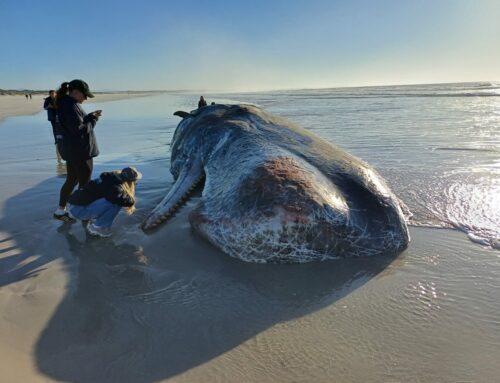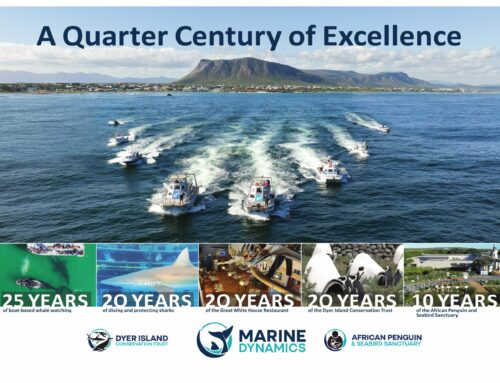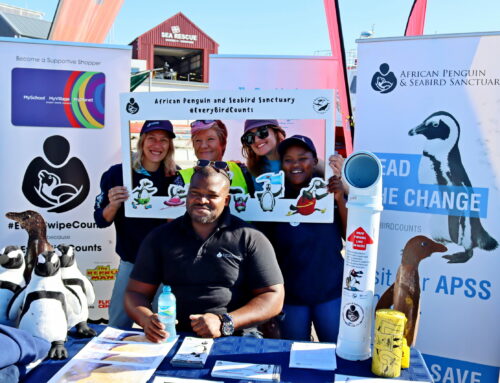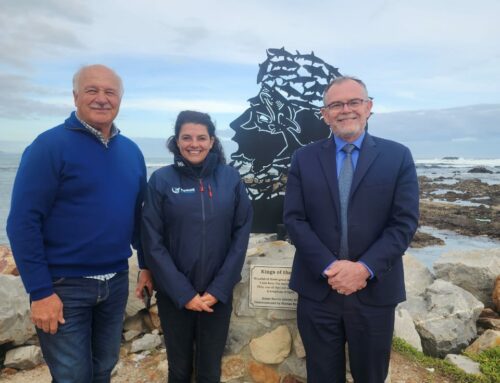World Wildlife Day is celebrated in 2022 under the theme “Recovering key species for ecosystem restoration”, as a way to draw attention to the conservation status of some of the most critically endangered species of wild fauna and flora, and to drive discussions towards their conservation.
World Wildlife Day is an opportunity to celebrate the many beautiful and varied forms of wild fauna and flora and to raise awareness of the multitude of benefits that their conservation provides to people. The animals and plants that live in the wild have an intrinsic value and contribute to the ecological, genetic, social, economic, scientific, educational, cultural and recreational aspects of human well-being and to sustainable development. This environmental day also reminds us of the urgent need to step up and fight against wildlife crime and reduction of species, which has economic, environmental and social impacts.
This year, the Dyer Island Conservation Trust wanted to look further than the ocean species we usually focus on such as our endangered African penguins, and vulnerable great white sharks.
Together with the Marine Dynamics Academy, the Dyer Island Conservation Trust (DICT) were joined by learners of the DICT’s Environmental Education Programme (DEEP) and Gansbaai Academia Marine Sciences students at the Uilenkraal Estuary.
Estuaries are highly productive ecosystems that provide important habitats for various marine species. They are utilized as nurseries, as feeding grounds and refuge for species in various life-stages. However, estuaries are highly threatened ecosystems because of human development around the river mouth and upriver. This impacts the overall health of the estuary, resulting in the decline in abundance and removal of ecological important species. The Uilenkraal estuary is recognised as a particularly sensitive and dynamic ecosystem, and the understanding of species diversity within this system is critical to our understanding of its importance. Here marine biologist, Ralph Watson, gave a lesson about the importance of the continuous monitoring of this important ecosystem.
Watson leads weekly environmental monitoring of water quality, complemented by bird counts to make sure the temperature, salinity and oxygen don’t exceed critical levels. Additionally he spoke about the various animals they saw during the outing, and the importance of the estuary as a critical habitat for juvenile fish species that can occur here.
“It was such an honour to share this day with the children and youth as they are the future leaders of wildlife conservation and they deserve a future where we humans live in harmony with wildlife that share the planet with us”, said educator Pinkey Ngewu.
The Dyer Island Conservation Trust is a partner to CapeNature who manages the Uilenkraal system as part of the Western Cape Government efforts to preserve these critical water systems. In
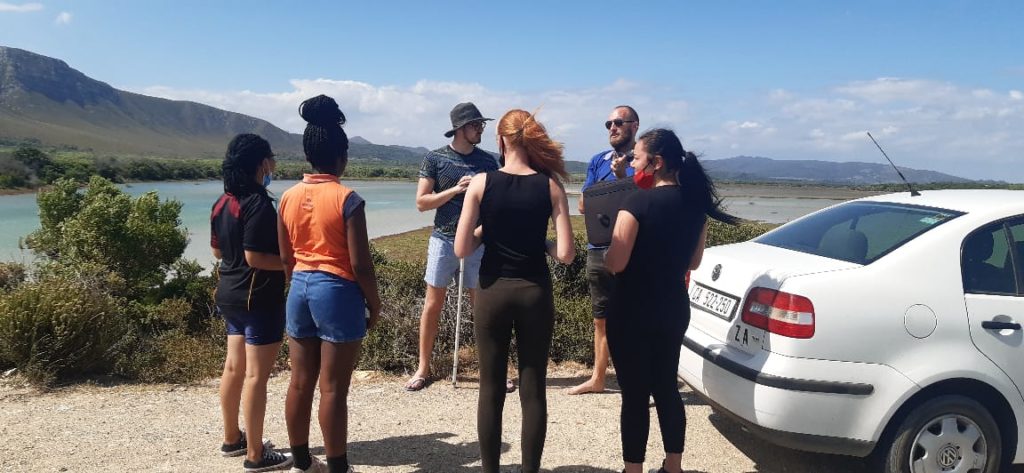 Ralph Watson doing briefing
Ralph Watson doing briefing
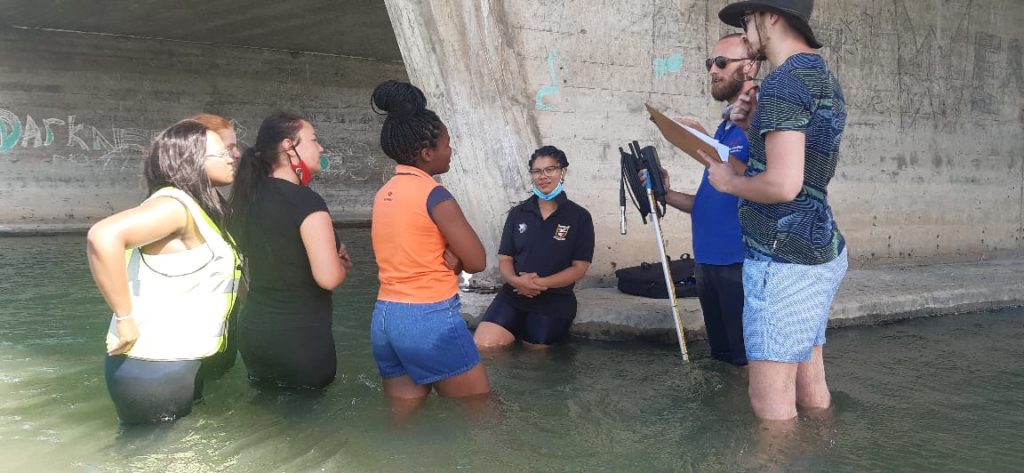 Explaining how using the YSI helps monitor the estuary
Explaining how using the YSI helps monitor the estuary
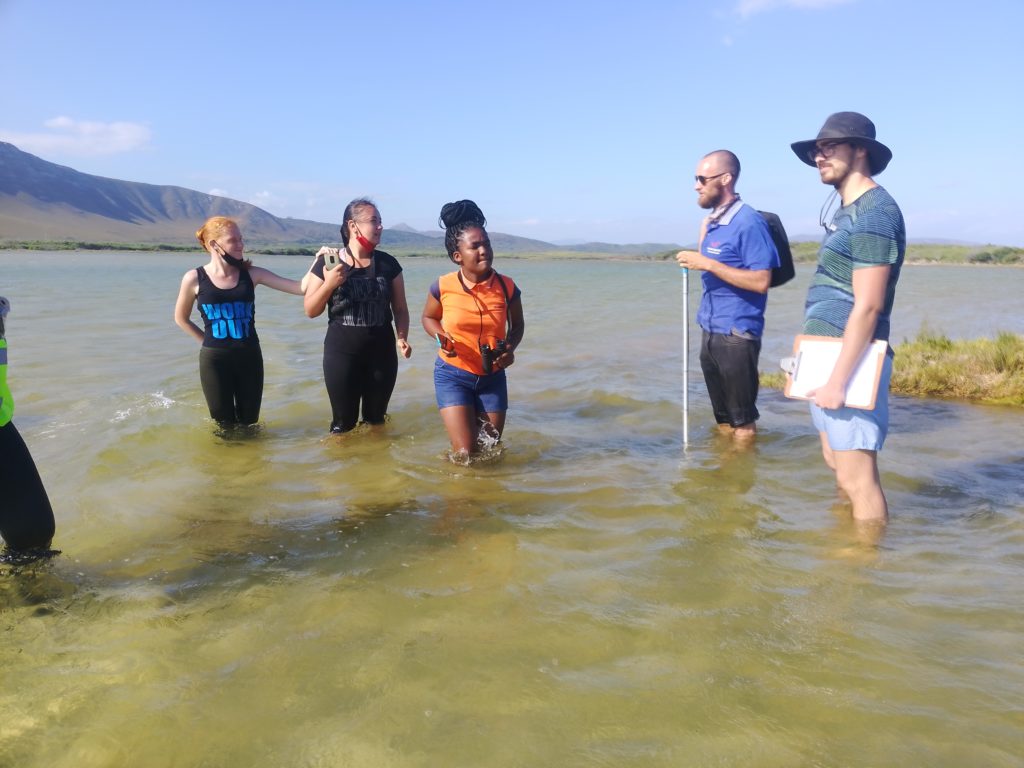 Temperature testing
Temperature testing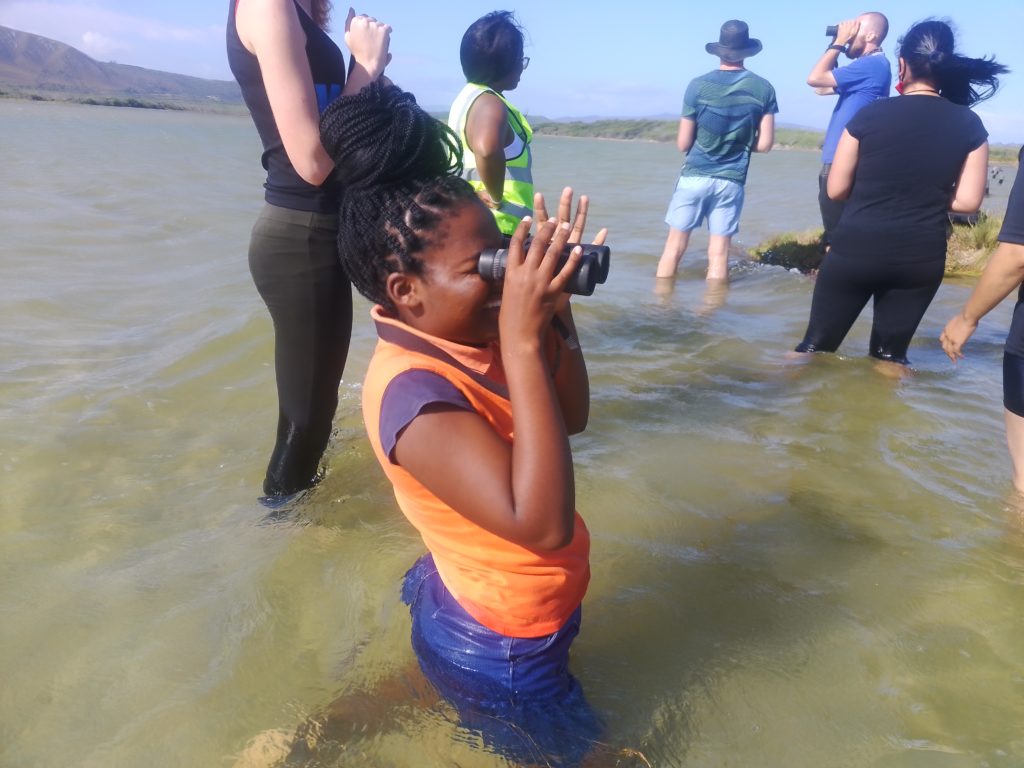 Bird identification
Bird identification
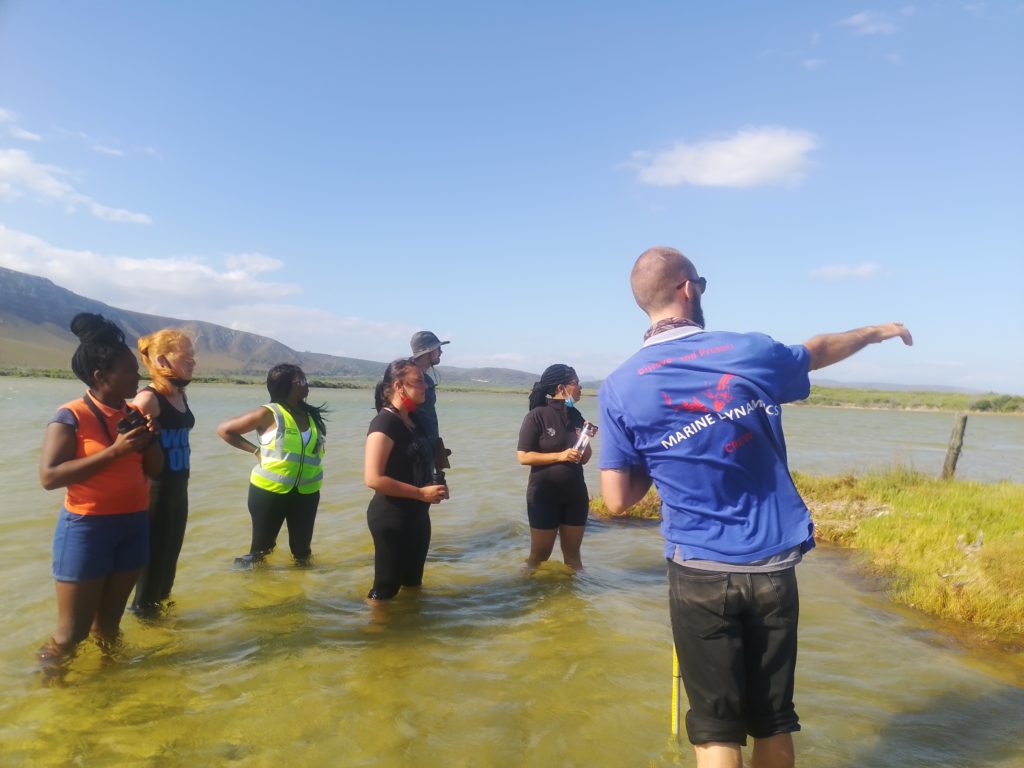 Bird watching
Bird watching

